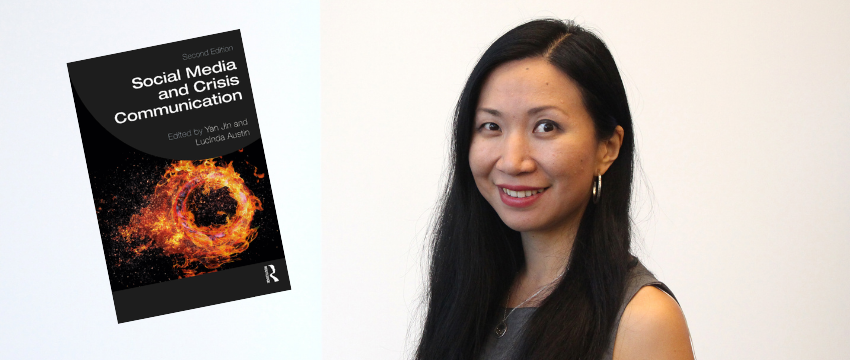New book ‘Social Media and Crisis Communication’ (2nd edition) bridges gap between theory and practice

New book ‘Social Media and Crisis Communication’ (2nd edition) bridges gap between theory and practice
Yan Jin, the Georgia Athletic Association Professor and a professor of public relations at Grady College, has released a second edition of her book “Social Media and Crisis Communication.”
Co-edited by Lucinda Austin, an associate professor and the Ph.D. program director at the University of North Carolina-Chapel Hill’s Hussman School of Journalism and Media, the book integrates theory, research and application to orient readers to the latest thinking about the role of social media in the field.
“This book offers the most updated research insights in the field of social media and crisis communication,” explained Jin.
It features chapters written by dozens of researchers and professionals from around the world, including many Grady College faculty members, graduate students and alumni.
“For this edition, we have a really strong UGA presence,” said Jin.
Jonathan Peters, an associate professor of journalism, Bryan Reber, the C. Richard Yarbrough Professor in Crisis Communication Leadership and Joseph Watson, Jr., the Carolyn Caudell Tieger Professor of Public Affairs Communications, Advertising and Public Relations, all contributed to the book. So did Grady graduate students Marilyn Broggi, W. Scott Guthrie, Xuerong Lu and Taylor Voges and alumni LaShonda Eaddy (PhD ’17), Yen-I Lee (PhD ’17) and Logan White (MA ’21).
The mission of the book, which Jin describes as one of a kind, is to bridge the gap between theory and practice. The book takes a deep look at specific crisis arenas, including health, corporate, nonprofit, religious, political and disaster, as well as emerging social media platforms and newer technology. It provides a fresh view of the role of visual communication in social media and a more global review of social media and crisis communication literature.
“We want to connect research and practice,” said Jin. “You learn theory and insights, but also there are tangible cases and ongoing dialogues from practitioners shining light on what is important for the industry.”
With an emphasis on ethics and global perspective, a brief overview of social media research in crisis communication and case studies for each area of application, the lessons in the book, Jin explained, are useful for scholars, advanced students and practitioners who wish to stay on the edge of research. It will appeal to those who are in public relations, strategic communications, government and NGO communications, corporate communications and emergency and disaster response, among others.
The first edition of “Social Media and Crisis Communication” was published in 2017. Austin served as the lead editor of the first edition, while Jin co-edited the book.